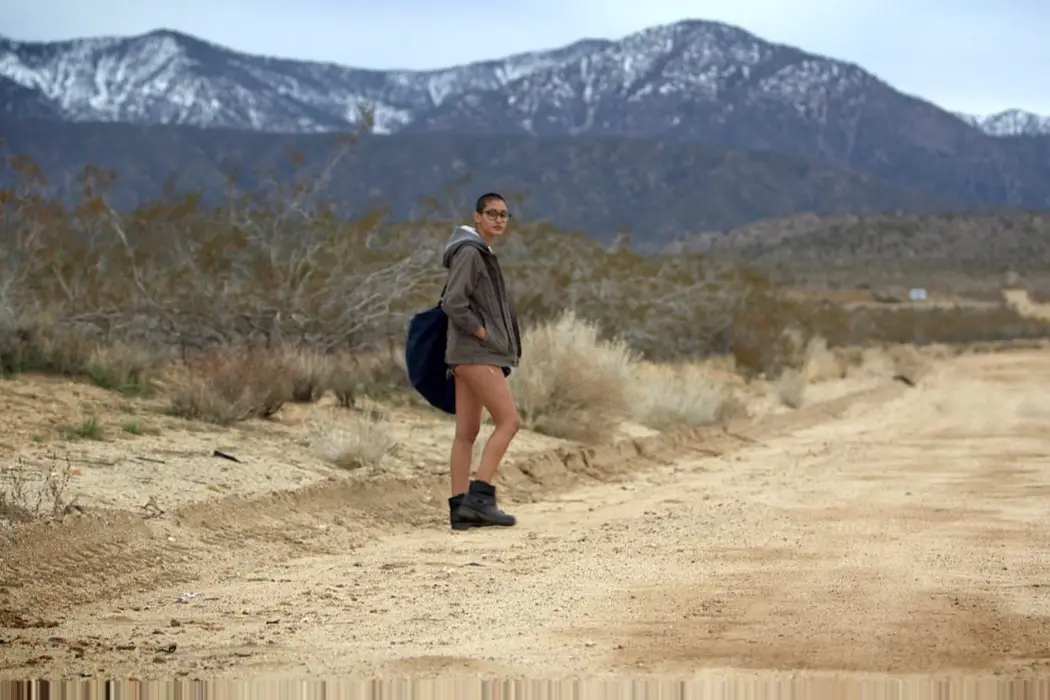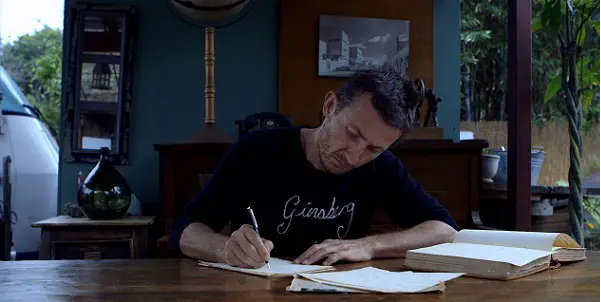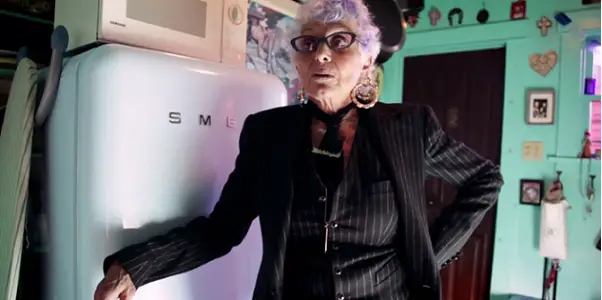MONOGAMISH: Tao Raspuli’s Journey Of Self-Discovery

Hazem Fahmy is a poet and critic from Cairo. He…
Like you (probably), I too was raised on monogamy. By that, I mean I had a married mother and father, and never thought much of it. I watched films and television, of all genres, where our hero ends up (married) with our heroine, and this just seemed…right. In my upbringing, this wasn’t so much about religiosity (after all, Islam in certain regards can allow polygamy) as it was about the basic social code: you grow up, you get a job, you get a wife, you get some kids – done. I never questioned the institution of marriage until college. Sometimes, despite everything I have learned, it can still be hard for me to wrap my head around relationships that are not monogamous.
It is in this light that I am most grateful for Tao Raspuli’s Monogamish. Striking a keen balance between the personal and the informative, the delightful documentary is an unexpectedly robust, eye-opening take on the history, as well as the contemporary state of marriage, love, and sexuality. What starts off as an interesting premise culminates in a captivating film that anyone in active pursuit of love should consider watching.

Divorce Blues
The doc’s premise is simple, and effective. Tao Raspuli, an Italian-American filmmaker, is fresh off his divorce (with Olivia Wilde, who is never named in the film). Upset and confused as to why their marriage ‘failed’, he sets out to explore and question the very concept and structure of marriage as it has become known and standardized in the Western world. In the process, he speaks to sociologists, lawyers, historians, journalists, and, most interestingly, members of his own family. This all serves to create a dynamic, as well as personal, approach to tackling the questions at hand.
Though the doc is structured entirely around talking heads, Raspuli does a good job of shaking things up. For starters, his input – whether it be friendly jabs, rapid follow-up questions, or personal perspective – is constantly present. The man has a natural talent for the art of interviewing, and he makes sure that each encounter is as fruitful as it is engaging. In this way, we become partners with him on his journey: growing with him as our assumptions are challenged right alongside his.

In addition to livening up every exchange, Raspuli makes good use of his filler material, relying on everything from news reels and classic film clips, to generic, but gorgeous footage of various couples. The stellar editing – achieved by a team of longtime collaborator Paul Forte, doc veteran Chris Seward, and relative newcomer Patrick Sanchez Smith – is as sharp as can be for a doc of this structure. There’s a good eye, and ear, for the best parts of conversation: the moments that bring out as much information as they do personality and perspective, whether that of Raspuli or his various subjects.
Information for All
Despite the film’s debunking of common preconceived notions regarding monogamy, it manages to refrain from didacticism. Raspuli makes sure to gather a wide variety of folks who feel and think differently about monogamy and its alternatives. In this way, the film presents a thoroughly engaging dialogue that is more concerned with exploration than it is with a singular point of view. Yes, the majority of subjects provide both skepticism and criticism of monogamy, but they do not attack the fundamental notion so much as they do its universalizing: the assumption that such a specific model for romance and sexuality can apply for us all.

Though the subjects’ range of identities was somewhat disappointing (the vast majority are both white and straight) their rage of perspectives and experiences is impressive. We meet couples that have been monogamous for decades, couples that are married, but open to different sexual partners, as well as people in polyamorous relationships. Besides demonstrating Raspuli’s hunger for perspective, this diversity allows for Monogamish to be accessible. As a viewer who prefers monogamy for his own life, I never felt as though I was being judged. Rather, I felt I was simply being asked to challenge my biases and misconceptions on relationships. That alone made the film such a damn worthwhile experience.
Monogamish: Conclusion
Raspuli ends with a heartwarming tease. In a letter he writes to his father, he reflects on the emotional and intellectual growth he’s experienced in making the film, and announces that he may have found a more suitable method for his romantic life. We cut from him writing to a couple we’d seen earlier in Monogamish who’d mentioned their interest in polygamy and polyamory. Raspuli joins them on their couch, and they all coolly hold one another, looking right at the camera with confidence and a hint of excitement. I don’t know Raspuli, but I felt happy for him.
What’re your favorite docs on love and sexuality?
Monogamish is currently in select theaters in the U.S. For a list of full release dates, see here.
https://www.youtube.com/watch?v=aslikCFqKP4
Does content like this matter to you?
Become a Member and support film journalism. Unlock access to all of Film Inquiry`s great articles. Join a community of like-minded readers who are passionate about cinema - get access to our private members Network, give back to independent filmmakers, and more.
Hazem Fahmy is a poet and critic from Cairo. He is an Honors graduate of Wesleyan University’s College of Letters where he studied literature, philosophy, history and film. His work has appeared, or is forthcoming in Apogee, HEArt, Mizna, and The Offing. In his spare time, Hazem writes about the Middle East and tries to come up with creative ways to mock Classicism. He makes videos occasionally.













